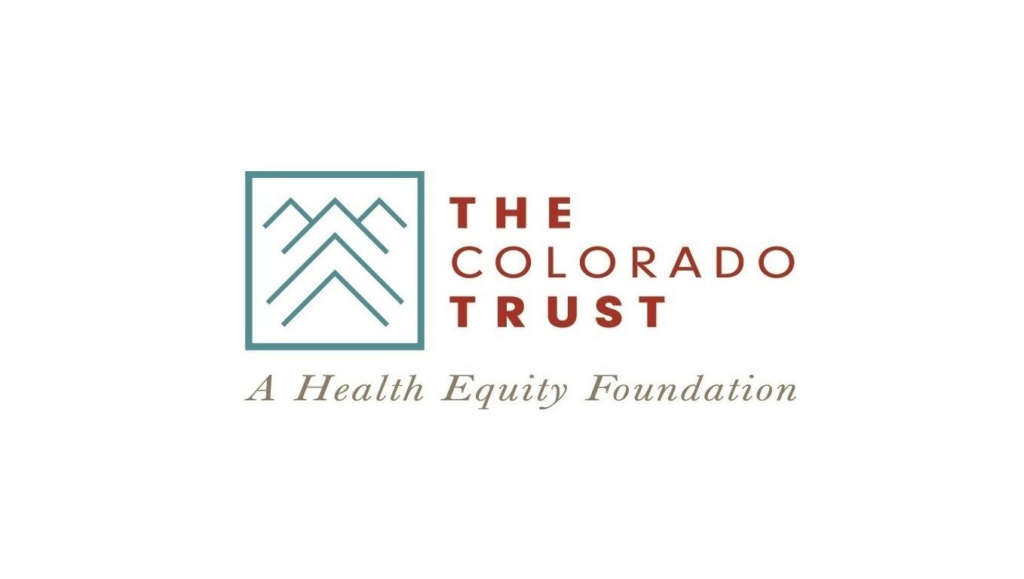
With over 34,000 nonprofits in Colorado, this economic report shows the force for good these organizations have on their communities.
Highlights include:
“Nonprofits have faced immense challenges since our last report in 2019,” said Paul Lhevine, president & CEO, Colorado Nonprofit Association. “They saw job losses during the pandemic and faced a slower recovery due to tight budgets, employee burnout and competition for higher-paying jobs in other industries. Nevertheless, it’s encouraging to see the continued growth and strength of the nonprofit sector and the meaningful impact on the economic well-being of our state and its people.”
Colorado Nonprofit Association, Community Resource Center, & Philanthropy Colorado.




Join Jay Voight MBA, M.Ed., SHRM-CP, LPC, CAS for this hour long presentation on Leadership for the Colorado Provider Association.
Nonprofit organizations grapple with profound challenges related to stress and burnout among their dedicated staff and volunteers. The intrinsic passion that propels individuals to work in the nonprofit sector, fueled by a profound commitment to social causes, paradoxically contributes to elevated stress levels. This two-part training initiative aims to equip individuals working in the nonprofit sector with a foundational framework for understanding, evaluating, and intervening in simple yet effective ways to minimize the impact of stress, burnout, and trauma on their day-to-day work experience.
Part 1 – Empowering Employees in Challenging Times
Jay will offer a basic neurobiological explanation of how stress, burnout, and trauma affect our bodies, along with tools employees can utilize to prevent, minimize, or mitigate these effects within the workplace. Participants will be provided with a basic “tool kit” to utilize the concepts and ideas presented within the workplace. This session will consist of 30 minutes of presentation followed by a 30-minute Q&A.
Part 2 – Cultivating a Healthy Workforce through Organizational Leadership
The second part of this training is designed to assist organizational leaders in assessing the impact of employee stress, burnout, and trauma on the execution of the organizational mission. Leaders will be provided with a comprehensive framework from which to prioritize and intervene within the workplace, aiming to develop the most effective organizational policies, structures, and communication methods to create a trauma-informed workplace. This session will consist of 30 minutes of presentation followed by a 30-minute Q&A.
Jay Voigt, MBA, M.Ed, LPC, CAS, SHRM-CP
Jay is an exceptionally seasoned and people-focused leader, boasting over two decades of proficiency in the healthcare industry. His expertise lies in the specialized field of behavioral healthcare service delivery within intricate and challenging environments. As a licensed professional counselor, certified addiction specialist, and Society of Human Resource certified professional, Jay possesses a unique blend of clinical skills and human resource knowledge. Drawing from his rich leadership experience, Jay is dedicated to assisting organizations in enhancing their relationships with their most valuable resource: their people. His comprehensive skill set, and holistic approach contribute to his ability to drive positive transformations within complex organizational settings.
Jay is a dedicated lifelong learner, consistently pursuing growth through continuous organizational and professional development. His pride lies in his transformational leadership approach, emphasizing investments in people, teams, and organizational culture. Jay is widely recognized for his exceptional communication skills, emotional intelligence, and critical thinking abilities.
As the founder and principal consultant of Human Capital LLC, Jay is deeply committed to leveraging his expertise in change management, strategic planning, human capital management, leadership development, team building, and healthcare strategy and operations to drive organizational growth.
Prior to his consulting venture in 2022, Jay held senior leadership positions in academic and traditional healthcare systems, public mental health, and private non-profit organizations in both Colorado and Pennsylvania. Today, as the driving force behind Human Capital LLC, Jay continues to make a substantial impact in the behavioral healthcare space, guiding organizations towards their goals while nurturing personal and professional growth in others.
Join Tes Cohen from Transformative Gatherings for a dynamic, participatory 60-minute workshop where we explore the often overlooked power of the debrief. Discover how creating space for post-event/program discussion to reflect on successes and lessons learned can pave the way for continuous improvement and innovation.
Tes Cohen

Tes’ life purpose is to create meaningful opportunities that foster curiosity and community in order to cultivate interconnectedness and continuous learning. She delights in doing exactly that by guiding companies that make the world a better place to amplify their impact by bringing intentionality to their workplace gatherings. Her career began serving as a Peace Corps Volunteer in rural Costa Rica and includes several years in the nonprofit world as well as five years in corporate philanthropy at Gap Inc. Tes is also the co-founder of Radical Reset, creating a movement of rested leaders and a world in which rest is democratized, normalized, and celebrated.
Tes has her BA in Psychology and Spanish from Connecticut College and Masters in Public Administration from NYU. She is on the board of Convivir Colorado, a nonprofit that guides youth impacted by migration to find power in their immigrant story.
In her spare time, Tes enjoys biking, rock climbing, teaching yoga, and travel (30 states and 30 countries visited and counting!).
What makes an effective nonprofit leader?
It’s not simply taking charge or making decisions—though that can often be how leadership presents. When used wisely, these capabilities certainly enable leaders to be decisive, action-oriented, and persistent. However, when bumping up against the culture of niceness in our social sectors, leaders who challenge themselves and others may experience push-back or resistance. This leads to frustration and anxiety, often leaving leaders feeling stranded or stuck.
This workshop aims to introduce Nonprofit Executives to a fundamental framework or operating system focused on strengthening leadership capabilities by focusing on mental fitness. Participants will get a sneak peek of what’s standing in their own way and a set of practical tools that, when practiced, can greatly enhance performance, satisfaction, and relationships with peers, colleagues, teams, and direct reports.
During our time together, we’ll explore:
In the second part of the workshop, participants will break out into discussion groups based on top saboteurs (from an online Saboteur Assessment they can conduct ahead of the workshop). Each saboteur group will create a simple poster describing the characteristics that present the greatest internal obstacles to their leadership, performance, achievement, and well-being. They’ll share with the entire workshop cohort. This is a fun, interactive way to gain deeper insights and help folks shift from conceptual understanding to a deep personal “a-ha” of how they have been undermining their own performance, effectiveness, wellness, and relationships.
We’ll conclude by offering resources folks can access to go deeper into the framework if they desire.

Kimberley Sherwood is a consultant, coach, and facilitator who works with nonprofit executives and leadership teams to help make their organizations more effective and humane. Her company helps guide people in creating positive change and aligning their personal practices with their professional aspirations, with a special focus on strategy, governance, and financial health. Stewardship is at the core of her company’s approach, with a deep sense of responsibility to conduct her work and her company for the benefit of her clients, their stakeholders, and the communities they serve. Find out more here.
Welcome to the new and improved Principles & Practices!
Developed for nonprofits, by nonprofits, our guide is now fully interactive. Find links to trainings, templates, and more within!
Copy Updated: September 2023
Principles & Practices for Nonprofit Excellence in Colorado is generously supported by:



Between the mass exodus of the Great Resignation and Baby Boomers retiring, the nonprofit sector is facing a leadership crisis. The departure of an organization’s top executive presents many challenges and opportunities. Most organizations are not ready for leadership transition. Studies show that 77% of nonprofit organizations don’t have a succession plan.
This session examines the depth of the leadership transition crisis, the importance of planning BEFORE the storm arrives, the three types of plans and the steps involved in developing them.

Dan Prater, Senior Managing Consultant at FORVIS
Dan is the Senior Managing Consultant at FORVIS. He provides consulting services to numerous nonprofits and governmental organizations throughout the United States. His services include strategic planning, board governance, leadership transition, and organizational assessments.
Dan has an extensive background in nonprofit leadership and higher education. He was the founder of the Center for Nonprofit Leadership at Drury University (Springfield, MO). He co-created the university’s popular Master of Nonprofit and Civic Leadership degree and continues to serve as the lead instructor in the program.
He has been a leader in various nonprofit organizations, mostly in the areas of poverty, child abuse, and domestic violence.
Dan is a frequent speaker at conferences and workshops throughout the nation. He has been published more than 50 times on nonprofit industry topics.
The people we work with associate us in certain ways, based on how we communicate, make decisions, and the big and small interactions they have with us. We associate products and services as having a “brand”, and we also put this assessment on each other. Being intentional about who you want to be as a leader today, and how you want to be known long after people work with you, can deepen your impact, expand your career growth, and differentiate your value from others. This workshop will make it easier to show up in a more powerful way with others, give your team a compass for success, and own your authentic self-promotion.

Bonnie Davis, Hu Work
I have spent almost twenty five years following my passion for learning and growth by designing and delivering on programs that: develop leaders, help people know and grow their strengths, guide organizations through change and transformation, improve performance, enhance culture, help teams work better together, and generally make work a more meaningful experience.
I started my career in my hometown of New York City as a human capital consultant, where I got hooked on the challenge of diving into organization’s people problems, researching what they can do differently, and creating roadmaps and programs that will bring high impact change.
When I moved to Denver in 2000, I took on internal HR roles to get closer to business strategy, learn how to influence senior stakeholders, and implement HR and OD programs that impact the bottom line. I learned the pain and the joy of making change happen so that it sticks.
In 2012, I realized I wanted to focus on helping people, teams and organizations across industries and a variety of business challenges, so I left my last corporate leadership role to focus on consulting, facilitation, speaking, training, and leadership coaching. Most of my time is spent working with high performing global organizations, often in high-tech. I truly get what it takes to be successful in the world’s most demanding organizations, since I have lived it as an insider and now see it firsthand with my client’s cultural and leadership challenges.
I have tapped into my love of learning and sharing my knowledge by teaching at University of Denver and The University of Colorado at Denver, writing articles for Forbes online, and volunteering as a career coach with Dress for Success.
Nonprofits often join forces to achieve their goals and better serve their communities. However, the merger process can be complex and challenging. That’s why we’re excited to invite you to our upcoming session called Nonprofit Mergers: Compounding Your Impact.
During the presentation, you will learn about the key steps involved in merging nonprofits, including legal and financial considerations, stakeholder engagement, and cultural integration.
Our expert speaker, Marcia Donziger, will share tips, potential pitfalls, and best practices for ensuring a successful outcome.

Marcia Donziger
Marcia is a Colorado nonprofit workplace culture strategist and the author of a new book, You Are Meant for Great Things, which documents the story of her cancer diagnosis before starting a new cancer organization, and then merging it to increase her impact on the cancer community.
The increasing number of entities pursuing climate targets presents a unique opportunity to those organizations in a position to generate carbon offsets, and participating in carbon markets can help mission-boost and generate sustainable revenue for participating nonprofits. During this session, participants will gain a high-level review of carbon market dynamics and the offset development process and lifecycle. We’ll dive into the barriers impacting carbon program pursuit for nonprofits, and explore potential pathways for making these programs feasible. At the end of this session, participants will have a better understanding of whether and how carbon programs may be a fit for their organizations.

Lindsay Schneider is the founder, CEO, and Principal Consultant of Village Carbon where she is partnering with non-profit organizations to monetize conservation and emissions-reduction activities through carbon revenue to further progress toward climate goals and bolster the financial sustainability of partner organizations. Lindsay brings over 16 years of diverse professional experience in environmental permitting, compliance, and management to her new venture, having worked in municipal government, consulting, construction, mining and materials, and midstream oil and natural gas. She has a track record of building successful teams and programs and is known as someone that can be counted on to get things done. Lindsay holds a BS in Analytical Environmental Studies from the University of Nebraska – Omaha and a MS in Global Energy Management from the University of Colorado – Denver.